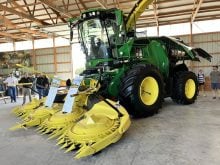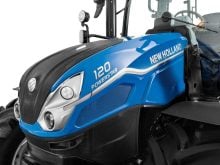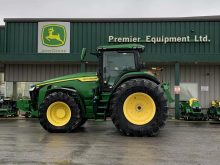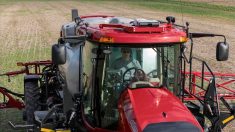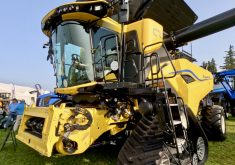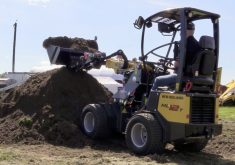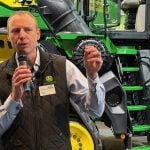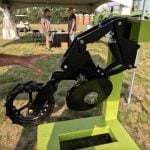Glacier FarmMedia – The new powered farm machines parked on dealership lots in the coming decade are going to look a little different than they do now, at least under the hoods. That’s according to information released recently by two major manufacturers, John Deere and CNH Industrial, parent company to Case IH and New Holland.
The largest player in the ag equipment market, John Deere, revealed it has some big plans in store when it comes to incorporating more advanced technology into its equipment in the not-too-distant future. In its 2021 Sustainability Report, the green brand lays out a timeline for adding not just more and better precision ag features, but also electric and hybrid powertrain options for some equipment lines.
It’s all part of Deere’s “smart industrial strategy.” That strategy, among other things, focuses on “delivering intelligent, connected machines and applications that will revolutionize production systems in agriculture and construction, unlocking customer economic value across the life cycle in ways that are more sustainable for all,” states the 2021 Sustainability Report.
Read Also
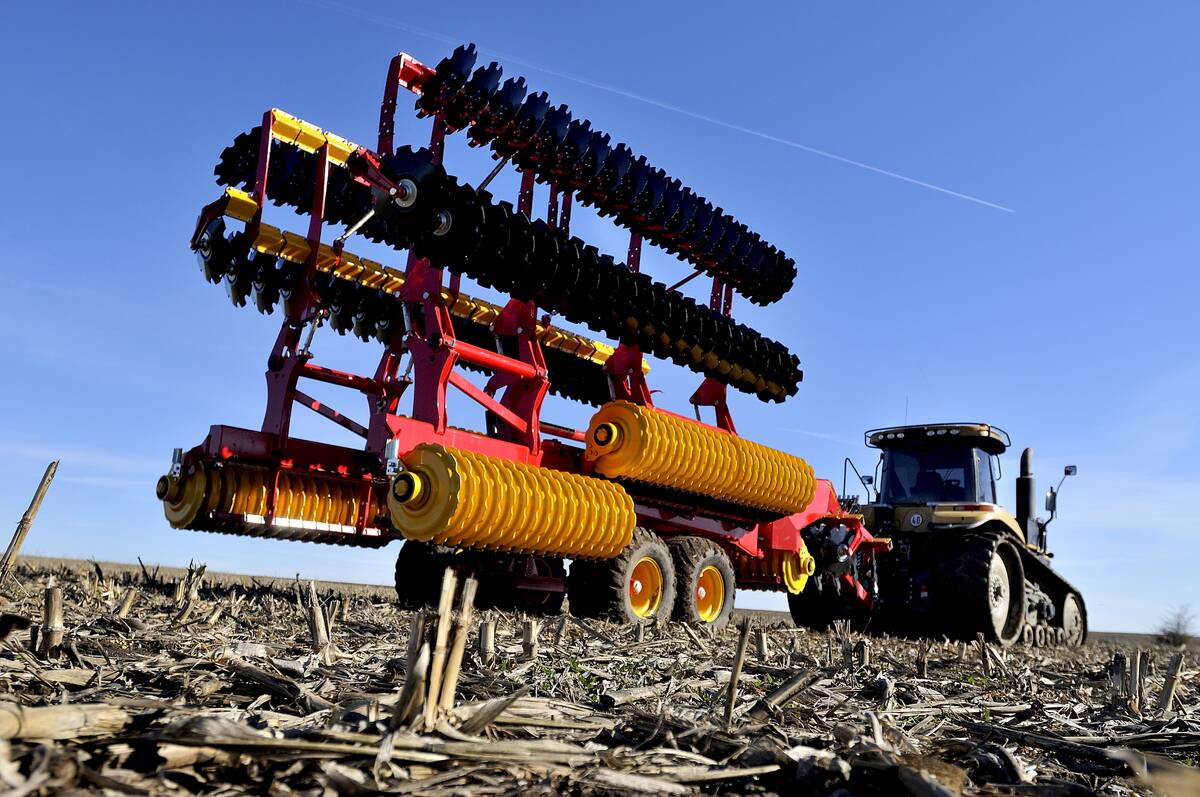
Evolution of European equipment manufacturers runs deep
A look at how Lemken and Väderstad have evolved from their traditional offerings of tillage equipment to include planting and seeding equipment in their lineups.
Milestone year
The year 2026 is going to be a milestone for Deere because that’s the deadline the company has set to introduce some of those new technologies.
At the moment, Deere says large-scale producers are using advanced precision ag systems and equipment monitored through the John Deere Operations Center on about 315 million acres globally. It wants to see that use of precision ag equipment and data collection increased to encompass 500 million acres by then.
The brand hasn’t focused only on large-scale producers, though. By 2026, it says it will ensure all small ag equipment is capable of advanced connectivity as well. It will offer electric drive compact utility tractors as well as in its turf equipment line by that date, too.
Deere will also offer a fully autonomous electric ag tractor by 2026 but it hasn’t given any details on what horsepower or specifications it will have.
Demand for sustainability
In its construction equipment division, 2026 will see more than 20 electric and hybrid-electric machines hit the market.
CNH has also indicated it, too, will soon offer improved precision ag features and electric drive equipment.
“Sustainability is something our customers, their customers and the planet are demanding,” said Selin Tur, vice-president of advanced technologies and innovations at CNH, in a presentation during an information day for corporate investors in Florida in late February.
“But this is not only about sustainability. Next-generation products (with electric drives) deliver a better user experience, reduced noise, better traction, driving and working features. Controls and automation are more responsive.”
The addition of electric drives will open up new uses for some machines, such as allowing prolonged indoor use in greenhouses. And the brand sees that as an opportunity for increased sales. Overall operating costs of electric machines are expected to be lower, requiring less maintenance.
Of course, battery electric drive machines will have limited applications. At least for now, very-high-horsepower tractors aren’t a good fit for that technology. But where it does work, adding electric drive machines will help manufacturers and producers prepare for the possibility of further increases in global emissions regulations.
But even on more conventional diesel-powered machines, electrification of implement drives could see fairly widespread adoption. Tur noted that PTO and hydraulic systems are areas where electric drives could — and probably soon will — improve tractor performance.
“In agriculture and construction, electrification involves far more than propulsion,” she said. “Our challenge involves improving total vehicle efficiency. Electrification improves all of this.”
She cited the example of the brand’s electrically driven pull-type sprayer, which is now in development. Powering it has shown to greatly reduce tractor fuel consumption and emissions compared with using regular PTO and hydraulics. This sprayer and other electric drive implements could soon see commercial market release. Tur described them as “in the works.”
In construction equipment, electrification also allows for reducing the size of machines to allow them to better access difficult areas without reducing power. And, according to Tur, diesel-electric hybridization increases the power-to-weight ratio of ag tractors. There are also plans for their introduction, she said.
While we wait to see hybrid machines hit the market, CNH and Monarch, a California-based small electric tractor builder in which CNH has invested, will soon offer a battery electric (BEV) model to the market.
“With regards to full electrification, we will launch our first battery electric tractor in partnership with Monarch. Following that we will continue to expand our BEV range as well as expand our electric construction offerings,” said Tur.
– This article was originally published at Grainews.






